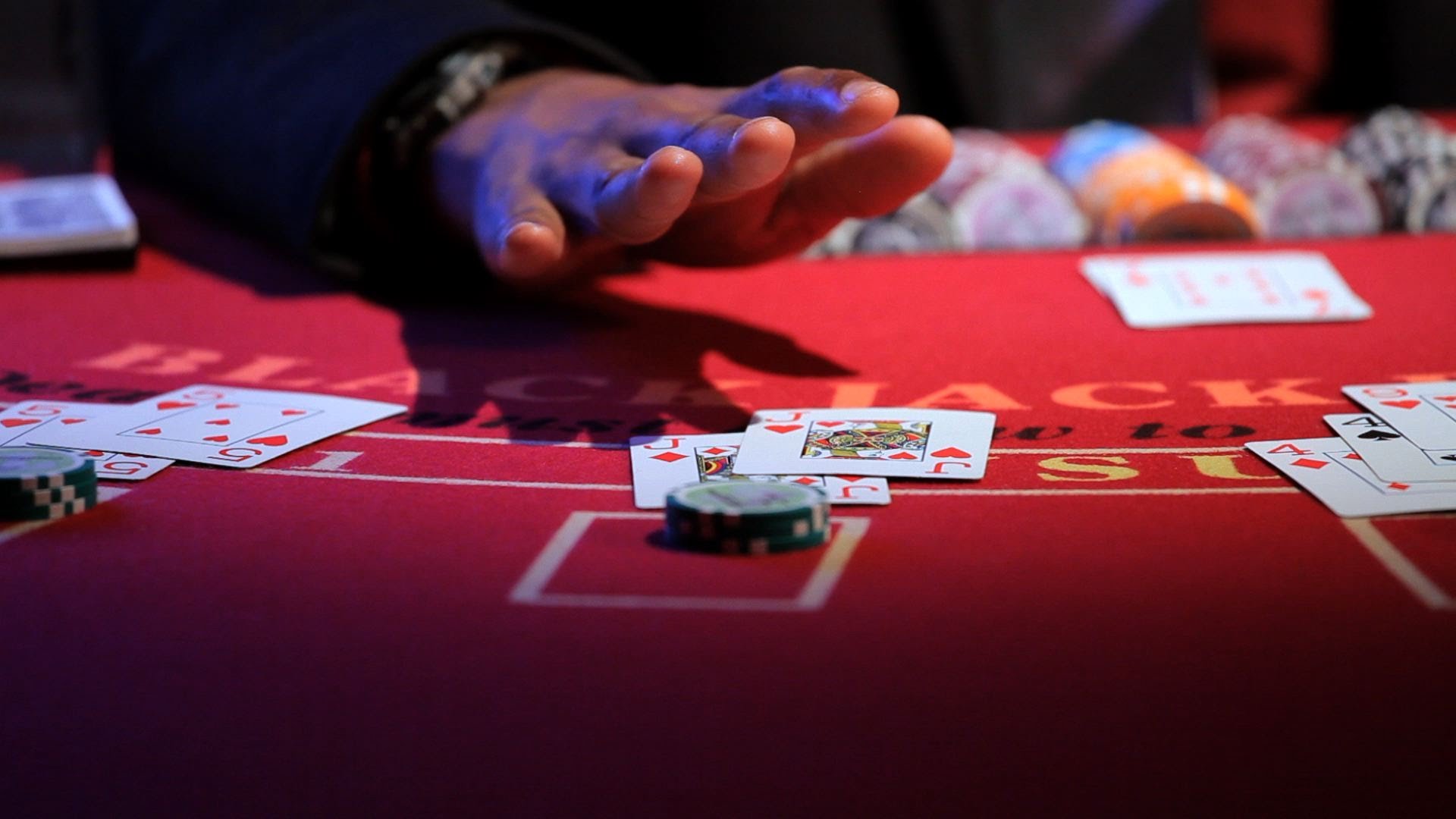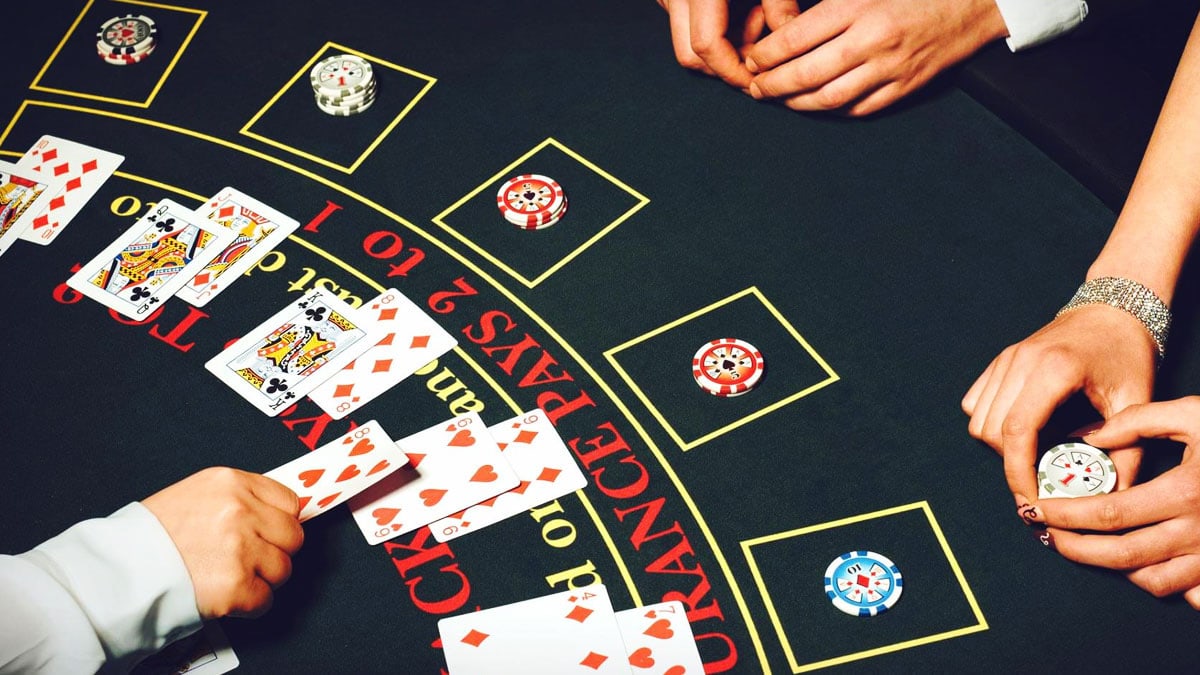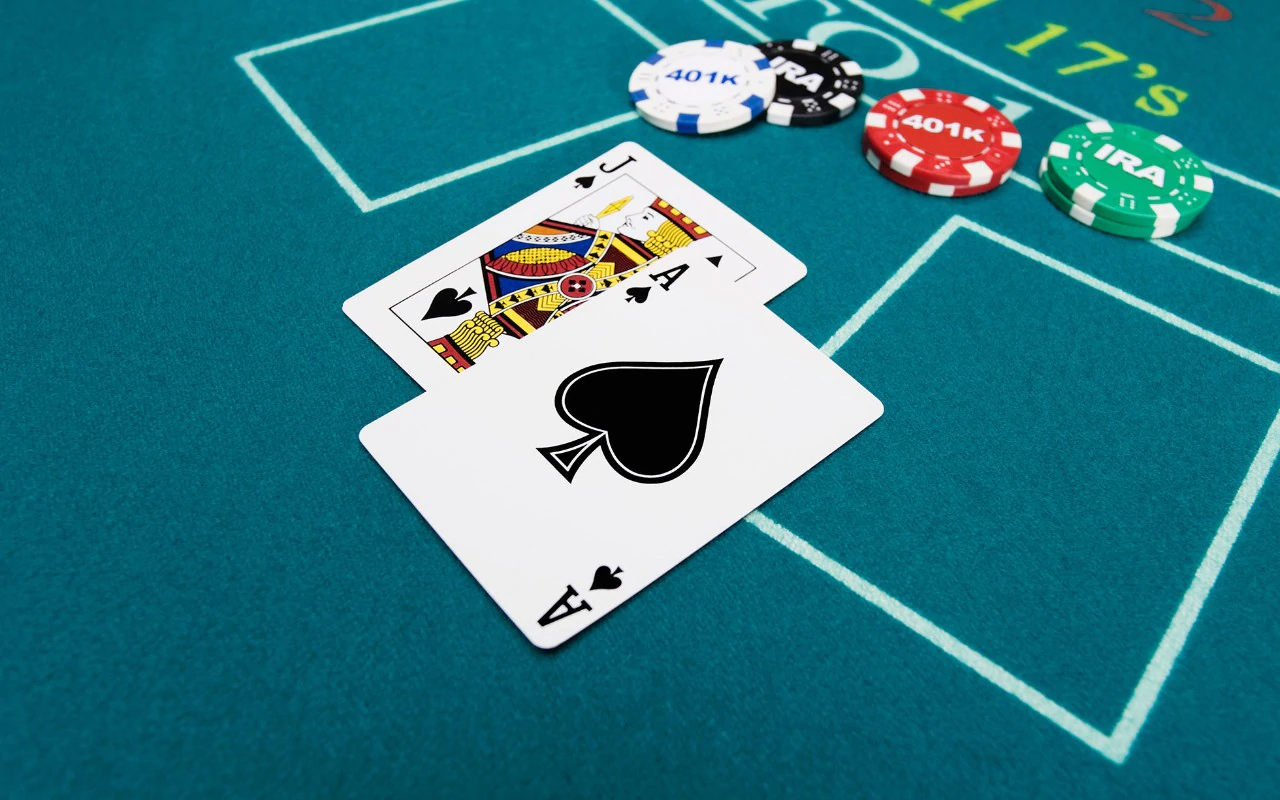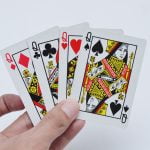Introduction
What Does Even Money Mean In Blackjack: In the thrilling world of blackjack, “even money” is a term that sparks curiosity and intrigue among both novice and seasoned players. As one of the most popular casino card games, blackjack has garnered widespread attention due to its combination of skill, strategy, and suspense. Central to the game’s allure is the possibility of achieving a “natural blackjack” – an Ace and a 10-value card – which guarantees an immediate win, provided the dealer does not also hold a blackjack.
When a player is dealt a natural blackjack, and the dealer’s face-up card is an Ace, a pivotal moment arises. The dealer presents the player with an enticing proposition: “even money.” This proposition involves the dealer offering an instant 1:1 payout for the player’s blackjack, regardless of the outcome of the dealer’s hand. Essentially, the player is presented with an opportunity to secure a guaranteed win rather than risking a potential push or loss if the dealer also has a blackjack.
The decision of whether to accept or decline even money carries significant implications and can deeply influence the dynamics of the game. While it may appear to be an attractive offer, it raises questions about risk, reward, and the overall strategy that players should employ in pursuit of maximum gains at the blackjack table.

Should you ever take even money in blackjack?
If the dealer doesn’t tie you, you SHOULD win $15 on that $10 bet. Unless you’re a card counter and know that more than a third of the remaining cards are 10s or face cards, don’t take even money.
In blackjack, “even money” is a term used when a player is dealt a natural blackjack (an Ace and a 10-value card) while the dealer’s face-up card is an Ace. When this situation arises, the dealer will offer the player the option to take “even money” before they check for blackjack in their own hand. Essentially, the player is being offered an immediate payout of 1:1 for their blackjack, guaranteeing a win on that particular hand.
The decision to take even money in blackjack is a subject of debate among players and experts. Mathematically, it is generally considered to be a suboptimal strategy. By accepting even money, players forfeit the chance to win the standard 3:2 payout for a natural blackjack. Over the long run, this can have a negative impact on the player’s overall expected return.
However, there are some situations where taking even money might be considered more acceptable. For example, players who are risk-averse or playing with limited bankrolls may opt for even money to secure a guaranteed win, avoiding the potential loss of a 3:2 bet if the dealer also has blackjack. Additionally, in team-based card counting strategies, players may use even money as a camouflage to disguise their advantage play.
Should you take even money in 6 to 5 blackjack?
In a 6-5 game, however, if even money is offered, that myth becomes reality. Always take the even money. (Not that I would ever advise anyone other than a hole-card player to play in a 6-5 game.)
In 6 to 5 blackjack, the payout for a natural blackjack (an Ace and a 10-value card) is reduced to 6:5 instead of the standard 3:2 payout found in traditional blackjack games. This change significantly alters the game’s dynamics and affects the player’s overall expected return.
Taking even money in 6 to 5 blackjack remains a contentious issue among players and experts. However, from a mathematical standpoint, the decision to take even money becomes even less favorable in this variant. By accepting even money in a 6 to 5 game, players further diminish their potential winnings, as the payout is even lower than the already reduced 6:5 rate.
In 6 to 5 blackjack, the house edge is typically higher than in standard blackjack due to the altered payout structure. Accepting even money further reinforces the casino’s advantage, making it more difficult for players to achieve long-term profitability.
Generally, the best strategy for players in 6 to 5 blackjack is to decline even money offers and play according to basic blackjack strategy. This involves making decisions based on the value of your hand and the dealer’s upcard, aiming to minimize the house edge and improve your chances of winning.
Should you always hit 12 in blackjack?
It is common practice to hit on eight or less, but stand on anything 12 or higher. When the dealer has a three, you should hit on anything eight or below and 12, while standing on anything 13 or over.
In blackjack, the decision of whether to hit or stand with a hand totaling 12 depends on the dealer’s upcard, as well as the specific house rules and the number of decks being used. A hand of 12 is considered one of the most challenging to play because it’s on the border between “stiff” hands (high risk of busting) and “pat” hands (potentially strong enough to win without hitting).
In general, there is no one-size-fits-all answer to the question of always hitting 12 in blackjack. However, there are some guidelines to consider:
1. If the dealer’s upcard is 4, 5, or 6, it is often best to stand. The dealer is more likely to bust with these cards, and you want to avoid busting yourself.
2. If the dealer’s upcard is 2, 3, or 7 through Ace, hitting is usually the better option. With these cards, the dealer has a higher chance of ending up with a strong hand.
3. Some blackjack variants and house rules may impact your decision. For instance, in games where the dealer hits on soft 17, you might be more inclined to hit your 12 to improve your chances against a potential stronger dealer hand.
It’s crucial to remember that blackjack strategy is not based on certainty but on probabilities. While hitting 12 can be a tough decision, following basic blackjack strategy charts, which consider all possible scenarios, will give you the best mathematical edge over the long term. These charts are based on extensive simulations and calculations to determine the most statistically favorable moves in different situations.
Ultimately, the decision to hit or stand on a 12 in blackjack should be guided by the basic strategy chart that aligns with the specific rules of the game you are playing.
What is 777 rule in blackjack?
You win if at least one of your first two cards is a 7; you win more if both of your first two cards are 7s. The payouts increase further if the Dealer’s up card is also a 7.
The “777 rule” in blackjack refers to a specific side bet that some casinos offer. It is an optional wager that a player can make alongside their regular blackjack bet. The rule is based on the idea of getting three sevens in their initial two cards, with potential payouts depending on the suit and rank of the sevens.
Here’s a typical example of how the 777 rule works:
1. If a player is dealt two sevens of the same suit, such as 7♠️ and 7♠️, they receive a higher payout. This can be, for instance, a 50:1 payout on the side bet.
2. If the player is dealt two sevens of different suits, such as 7♦️ and 7♣️, they receive a smaller payout. This might be a 3:1 or 5:1 payout, depending on the casino’s rules.
3. In some variations, if the player’s first card is a seven and the dealer’s upcard is also a seven, it can result in an even larger payout.
It’s important to note that the 777 rule is a side bet and doesn’t affect the outcome of the regular blackjack hand itself. As with most side bets, the odds are typically stacked in favor of the casino, so players should be cautious and consider their overall blackjack strategy before placing such additional wagers.
As with any casino game, players should be aware of the specific rules and payouts associated with the 777 side bet before deciding whether to participate. It’s always advisable to understand the odds and potential risks before placing any bets in blackjack or any other casino games.

Can 2 people play blackjack?
Blackjack. Blackjack can easily be played with just two people and a 52 card deck. To get started, the dealer gives the opponent one card face up, and one card face down, then repeats this for themselves. Both players then peek at the value of the facedown card and add that to the value of their face up card.
Yes, two people can play blackjack. In fact, blackjack is a versatile card game that can be played with as few as two players or as many as eight, depending on the casino or house rules.
When playing blackjack with only two people, the game is commonly referred to as “heads-up blackjack.” In a heads-up game, one player assumes the role of the dealer, and the other is the player. The rules are similar to standard blackjack:
1. Each player is dealt two cards, both face-up in some variations or one face-up and one face-down in others.
2. The objective remains the same: to have a hand value closer to 21 than the dealer’s hand without exceeding 21.
3. Players can choose to hit (receive additional cards) or stand (keep their current hand).
4. Players can also double down (double their bet after receiving the first two cards) or split (if they have a pair, they can split the cards into two separate hands and continue playing both).
5. The dealer follows specific rules for hitting or standing based on the casino’s or house’s guidelines.
While heads-up blackjack can be a fun and engaging way to play the game, it does differ from the traditional multiplayer version. In a two-player setting, players can take turns dealing and have more direct control over the pace of the game. However, the strategies and decisions in heads-up blackjack can be more intense and nuanced, as players must consider their opponent’s moves more carefully.
What is “even money” in blackjack, and when does it come into play?
In blackjack, “even money” refers to a special proposition offered to a player who has been dealt a natural blackjack, which consists of an Ace and a 10-value card (10, Jack, Queen, or King) as their initial two cards. The player’s natural blackjack automatically wins, except when the dealer also has a natural blackjack (a push), in which case the player’s bet is returned without any profit or loss.
The “even money” proposition arises when the dealer’s face-up card is an Ace. At this point, the dealer will offer the player the option to take an immediate payout of 1:1 on their blackjack instead of waiting to see if the dealer also has a blackjack. By accepting even money, the player is effectively settling for a guaranteed win of their original bet, regardless of the dealer’s hand.
The purpose of offering even money is to provide a sense of security and to avoid the possibility of a push, which can be seen as a more appealing option for risk-averse players. By taking even money, players avoid the slight chance of losing the hand when the dealer has a natural blackjack, ensuring they walk away with a profit.
However, from a purely mathematical perspective, accepting even money is not the most optimal decision. In the long run, declining even money and receiving the standard 3:2 payout for a natural blackjack yields higher expected returns for players. Skilled blackjack players adhere to basic blackjack strategy, which considers probabilities and odds, to make informed decisions about whether to accept or decline even money based on the specific circumstances of each hand.
What does accepting “even money” in blackjack entail for a player who has a natural blackjack?
When a player has a natural blackjack (an Ace and a 10-value card) in blackjack and the dealer’s face-up card is an Ace, the dealer will offer the player the option to accept “even money.” Accepting even money means the player agrees to take an immediate payout of 1:1 on their blackjack, rather than waiting to see the outcome of the dealer’s hand. In simple terms, it secures a guaranteed win for the player, regardless of whether the dealer has a blackjack as well.
By choosing even money, the player avoids the possibility of a “push” or tie, which occurs when both the player and the dealer have a natural blackjack. Without taking even money, a push would mean the player keeps their original bet without gaining any profit.
The appeal of even money lies in its certainty and risk-averse nature. Players who accept even money prioritize securing a win on that specific hand, as they are guaranteed a return equal to their original bet. This can be particularly enticing for players who feel uneasy about potentially losing their bet in case of a push.
However, it is important to understand that accepting even money is not the most advantageous decision from a strategic standpoint. If a player declines even money and the dealer does not have a blackjack, the player receives the standard payout of 3:2 on their original bet, resulting in a higher overall profit in the long run.
Experienced blackjack players often rely on basic blackjack strategy to make informed decisions about whether to accept or decline even money based on the specific circumstances of each hand and their risk tolerance. While even money provides instant gratification and a sense of security, players aiming to maximize their profits over multiple hands may choose to decline the proposition and stick to the traditional payout for natural blackjacks.
How does the decision to take “even money” impact a player’s overall expected return in blackjack?
The decision to take “even money” in blackjack can impact a player’s overall expected return over the long run. Expected return refers to the average amount a player can expect to win or lose per unit bet in a particular casino game, considering the probabilities and payouts involved.
When a player is offered even money for their natural blackjack (an Ace and a 10-value card) and the dealer’s face-up card is an Ace, they have two options: either accept the even money proposition or decline it and let the hand play out as usual.
Taking even money results in an immediate 1:1 payout, guaranteeing a win for that particular hand, regardless of the dealer’s hand. On the other hand, declining even money means the hand proceeds normally, and if the dealer does not have a natural blackjack, the player receives the standard 3:2 payout for their blackjack.
Mathematically, accepting even money has an impact on the player’s overall expected return. By taking even money, the player locks in a lower payout compared to the 3:2 payout they would receive without accepting the proposition. Over time, this reduction in payout lowers the player’s overall profitability in the long run.
In contrast, declining even money and sticking to the standard 3:2 payout leads to a higher expected return, as it gives the player a chance to earn more money on their blackjack over multiple hands. By following basic blackjack strategy and making optimal decisions, players can maximize their expected return and improve their chances of coming out ahead in the game of blackjack.

Conclusion
“Even money” in blackjack is a fascinating proposition that can significantly impact a player’s strategy and outcomes at the table. When presented with a natural blackjack and the dealer’s upcard is an Ace, the allure of an instant 1:1 payout can be enticing. However, the decision to take even money requires careful consideration and an understanding of the underlying mathematics.
While the immediate gratification of securing a win is appealing, it is essential to recognize that accepting even money comes at a cost. By doing so, players forfeit the opportunity to receive the more favorable 3:2 payout for a natural blackjack. Over the long run, this concession can diminish potential profits and negatively affect the player’s overall expected return.
When contemplating the even money proposition, players must weigh the risks and rewards based on various factors, such as their bankroll, risk tolerance, and the specific blackjack variant being played. Those employing a sound basic blackjack strategy are more likely to make informed decisions, maximizing their chances of long-term success.
Furthermore, understanding the context in which even money arises is vital. In games with unfavorable blackjack payouts, such as 6 to 5 blackjack, the allure of even money can be amplified, but players should remain cautious, as the overall odds in such variants are already stacked in favor of the casino game.
Ultimately, the decision to accept or decline even money rests on the player’s individual preferences and willingness to take risks. By weighing the potential rewards against the drawbacks, players can make informed choices that align with their goals for an enjoyable and rewarding blackjack experience. Whether opting for the safe route or embracing the thrill of uncertainty, a comprehensive understanding of even money empowers players to navigate the ever-enticing world of blackjack with confidence and skill.










